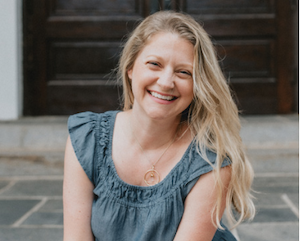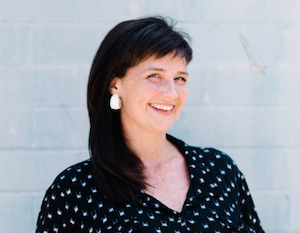Making Kin with Trees: Three Educators and Children Entangled with Treescapes
by Stephanie Jones, Lindsey Lush, and Sarah Whitaker
Trees might save us. Suzanne Simard (2021, p. 6)
In her book, Finding the Mother Tree, Suzanne Simard entangles memoir, science, history, industry, forests, fungal systems, capitalism, and ecology. She is emphatic that the book is not a book about “saving trees” but rather “a book about how the trees might save us” (2021, p. 6). Simard argues that the wisdom of forests is vital for a thriving ecosystem, and thus vital for the thriving of human beings. She maintains that dominant ways of thinking in the natural sciences have harmed forests, that capitalist interests in forests are more destructive than previously believed, and that humans can learn a lot from the communal, networked, resource-sharing practices of the forest.
Simard also writes, beautifully, about her lifelong relational ways of being with specific treescapes, what we think Donna Haraway would call kin-making with forests. Simard believes it was in that embodied relational being with trees and listening to forests that she was able to embark on a revolutionary journey that would turn forestry research upside down.
Forests are alive. Trees, shrubs, and fungi communicate with one another. There are Mother Trees.
Mother Trees are hubs of decades and hundreds of years of experience and wisdom that send out warnings about invasive species, communicate the needs of trees and plants struggling to thrive, and share nutrients through fungal systems. They are part of a kinship network, anchored in a particular place, entangled with all other beings in that shared world, including scientists like Suzanne Simard, Anna Lowenhaupt Tsing (2015), and Robin Wall Kimmerer (2003, 2013), and hundreds of millions of humans who are always becoming-with their more-than-human world.
We use the phrase more-than-human to describe all life that thrives beyond the category of human and all of the other things that mesh with and give shape to life (ideas, language, things, systems, and structures). While the “life” of transient beings is always assumed to be “living,” these other things in the world also have vitality, movement, and power.
 Stephanie Jones is a Josiah Meigs Distinguished Professor at the University of Georgia, where she teaches a wide range of classes in the College of Education and in women’s studies, including courses on social class and capitalism, feminist theories and pedagogies, literacy pedagogies, teacher education, qualitative writing, inquiry and justice-oriented education, bodies and sexuality in K-16 education, and more. She frequently writes newspaper editorials for public audiences responding to current events that impact children, families, teachers, and K-12 education, and she writes regularly about nature, meditation, and healing on her personal substack. Stephanie loves to wander and wonder along trails in public parks where she lives and visits, and she is grateful to have many tree friends.
Stephanie Jones is a Josiah Meigs Distinguished Professor at the University of Georgia, where she teaches a wide range of classes in the College of Education and in women’s studies, including courses on social class and capitalism, feminist theories and pedagogies, literacy pedagogies, teacher education, qualitative writing, inquiry and justice-oriented education, bodies and sexuality in K-16 education, and more. She frequently writes newspaper editorials for public audiences responding to current events that impact children, families, teachers, and K-12 education, and she writes regularly about nature, meditation, and healing on her personal substack. Stephanie loves to wander and wonder along trails in public parks where she lives and visits, and she is grateful to have many tree friends.
 Lindsey Lush is an elementary school teacher and doctoral student in Educational Theory and Practice at the University of Georgia. In her research and practice, Lindsey explores feminisms, posthumanisms, play, emergent learning, social studies, and literacy. She serves on the board of directors for Athens Forest Kindergarten, an educational nonprofit dedicated to promoting nature, play, and reflective caregiving in early childhood. She loves learning every day in community with wonderful educators like Sarah and Stephanie.
Lindsey Lush is an elementary school teacher and doctoral student in Educational Theory and Practice at the University of Georgia. In her research and practice, Lindsey explores feminisms, posthumanisms, play, emergent learning, social studies, and literacy. She serves on the board of directors for Athens Forest Kindergarten, an educational nonprofit dedicated to promoting nature, play, and reflective caregiving in early childhood. She loves learning every day in community with wonderful educators like Sarah and Stephanie.
 Sarah Whitaker has devoted her career to promoting reflective and holistic practices in education. She is the founder and director emerita of the nonprofit Athens Forest Kindergarten and has also worked as a part- time professor teaching undergraduate and graduate classes. In her work as a consultant, Sarah offers professional development to help educators incorporate reflective and holistic ways of being into their teaching practice at all levels from early childhood through higher education. Sarah has a doctoral degree in Educational Psychology and is a Circle of Security classroom coach, a teacher of mindful movement, and is passionate about building community.
Sarah Whitaker has devoted her career to promoting reflective and holistic practices in education. She is the founder and director emerita of the nonprofit Athens Forest Kindergarten and has also worked as a part- time professor teaching undergraduate and graduate classes. In her work as a consultant, Sarah offers professional development to help educators incorporate reflective and holistic ways of being into their teaching practice at all levels from early childhood through higher education. Sarah has a doctoral degree in Educational Psychology and is a Circle of Security classroom coach, a teacher of mindful movement, and is passionate about building community.